#MondayMaterials Episode 28 – Lara Debenham
Meet the Department 23rd January 2017
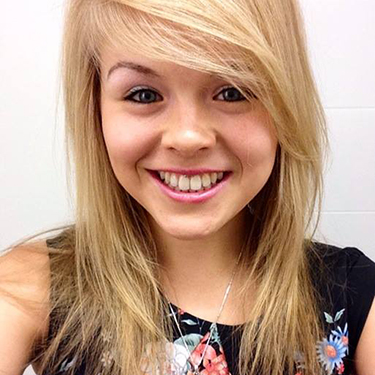
Okay. So today we reach Episode 28 of #MondayMaterials and it’s one of the highlights of the series so far. Lara Debenham, a PhD student, came highly recommended by Chris Blanford, who you might remember from an earlier episode.
According to Chris, Lara is someone who is extremely passionate about her subject and very capable of demonstrating that passion when she talks about it. He wasn’t wrong. With some of the most interesting and inspiring answers we’ve seen here at #MondayMaterials, let’s meet Lara:
Hello, Lara! Thanks so much for talking to us. We’ll start with everyone’s favourite: can you please describe your research, for the layman, in ten sentences or less?
Yeah, so I’m interested in how materials work on a micro to a nano scale and how what goes on at that scale effects their macro properties. I’m particularly interested in understanding how materials fail, why they’re strong, and how we can make them more efficient at what they do – with the hopes that we can integrate this into every day environments and create stronger and more efficient materials.
My research relates to nuclear, and trying to develop stronger materials for higher temperature and irradiation environments. The hope is that one day we’ll all have access to fossil free fuel energy.
And how can your research benefit the public?
Well if we can make materials better at what they do, so influence their properties and just change them for the materials that were doing that job, then we can make the average person’s day more energy efficient, more sustainable. We can remove toxic elements, that we might have in some of our functional materials, that have degrading effects to materials around the world. People have to mine these materials.
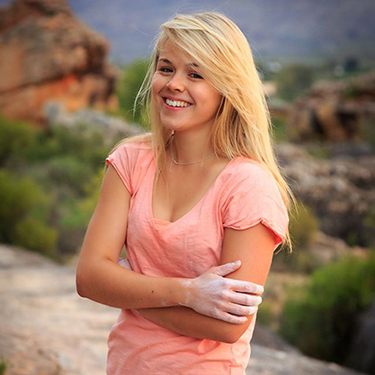
If we can remove these issues in our materials cycles, make the materials more efficient so that, for example, a plane – if you can make a plane lighter but still damage resistant and damage tolerant, as strong as it was before – every time that plane takes off it’s used less fuel. So you’ve reduced the carbon footprint of every single passenger on that plane without them even knowing about it.
If you can make an electronic device function more efficiently just by changing the way it’s made up, then every time a person turns a light on at home or watches TV for half an hour they’ve used what 10/15% less energy? Maybe even less.
Or you change the source that the energy has come from altogether, maybe. And that to me is so important. To make the world sustainable without people having to change, because at the end of the day no one really wants to change what they’re doing. And so if you can do that in the background, that’s great.
Wow – that’s a great answer, Lara. Inspiring stuff. So how did you first get interested in your research area?
Okay, so I look at the way materials behave inside a fusion reactor. As I’ve sort of mentioned in my other answers, I’m really interested in sustainability and materials. So the overlap in that is, how do we generate cleaner energy sources? And some of the biggest challenges revolve around the materials – and everyone who researches in this field will say their thing is the biggest challenge – but trying to get materials to behave when they’re irradiated or at high temperature is very difficult. And from that point of view, that’s what made it so interesting to me – to look at how the materials start to change in that environment. And what small changes we can make to those materials in the first place, so that they’re more resistant. Yeah, that’s what got me interested.
And who or what first inspired your interest in science?

Well both my parents are scientists; my dad has an academic background. And I remember from an early age sitting in the car, I must have been younger than ten, and my dad was trying to explain to me what atoms were, and bonds in materials, and compounds. I remember just being interested. And just from that age being sparked to ask questions – not just being satisfied with ‘this is how something works’. If I didn’t understand I wanted to ask a question and say ‘but why, why is it like that? And how do I find out more about how this works?’
And then my mum is a dietician, and so from a young age she was trying to get me to eat healthier and trying to explain what food was made up of. What nutrients were in what I was eating. What was good for me and what was bad for me in the food.
On a very basic level, but I guess that’s kind of crossed over into materials science. And now I’m interested in ‘how does this material work? What’s good about its microstructure? What’s not so great? And how can we get the best balance?’
Thanks, Lara. So moving away from work for a question, can you tell us a bit about your other interests? What do you get up to in your spare time?
I’m really active. I love being outside and doing different sports. In particular I’m really into climbing, I’ve gone climbing in all different places around the world. I really enjoy that – just being outside in nature. Going for a run, that’s the best thing to me. And if I don’t have time for that then just doing sports with friends for fun. That’s where I like to be.
Onto our last question, could you tell us how being here in Manchester helps your work and research?
I was lucky enough to study Materials Science and Engineering as an undergraduate here in Manchester. Every single one of my lecturers, and the content that I covered, was so interesting. And the academic staff here are so inspiring. It’s an honour to be working amongst them now, and developing my own area of research within the school. It’s something really special to me.
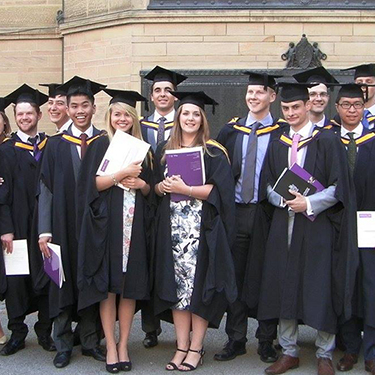
And also, the facilities here – they’re state of the art. And Manchester’s now the leading European school for materials, so who wouldn’t want to be part of that?
Exactly right, Lara – who wouldn’t want to be? Thanks for a brilliant interview, and for giving our readers of how exciting and rewarding it can be to study materials here with us. Readers, if you’re feeling as inspired as I am, head over to the website to find out more about how you could follow a similar path to Lara. And then head back to the blog, we’ll have more great stuff for you soon.
Materials ScienceNuclearSchool of MaterialsSustainabilityThe University of Manchester

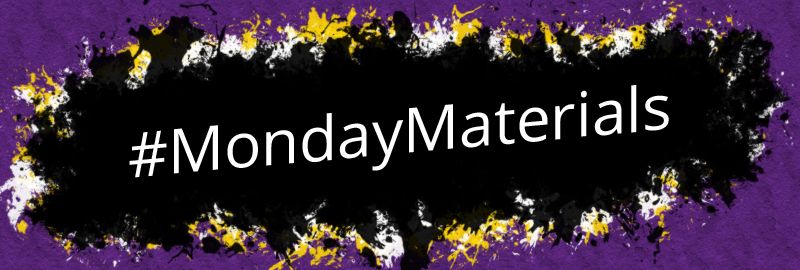
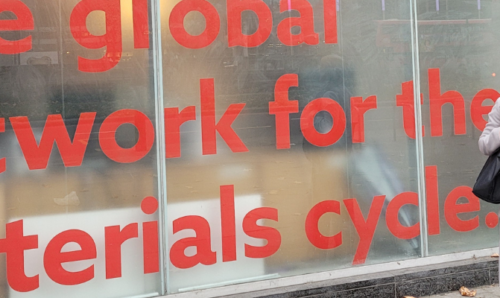
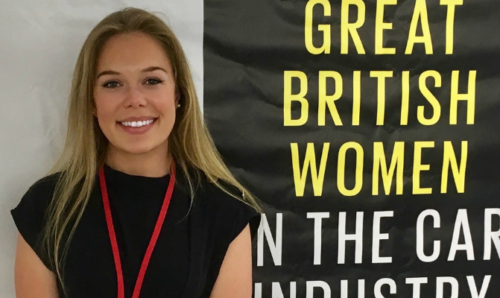

Leave a Reply
You must be logged in to post a comment.